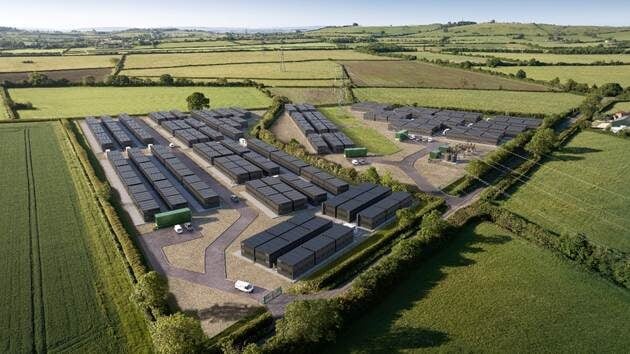
A survey commissioned by battery energy storage system (BESS) developer Root-Power has revealed that both the English public and local officials are broadly in support of BESS developments in their local area.
Two-thirds (65%) of the 2,074 people surveyed said they would support the development of a standalone energy storage project in their local area, with over three-quarters (77%) of the 430 councillors surveyed saying they would support such developments in their constituency.
Support is widespread across the political spectrum, with 71% of Labour voters coming out in support of battery energy storage projects and 70% of Green Party voters expressing support for BESS developments. Right-wing voters also expressed high levels of support, with 66% of Conservative Party voters in favour of BESS projects and Reform UK voters, the most opposed to BESS developments in this survey, expressing a 64% level of support. Age also had little impact on levels of support, with opposition to BESS projects not rising above 17% across all age groups.
Neil Brooks, managing director at Root-Power, stated that the cross-party support for BESS developments among both councillors and the general public proved that BESS projects are a “no-brainer” for many, stating: “It’s great to see such a high level of support for battery storage projects among both councillors and the people they represent.”
He added: “What we really need now is a concerted effort from local and central government to embrace this support and help the sector to bring more developments forward.”
Furthermore, adding co-located BESS to a solar PV power plant proposal increases the public support for solar developments. Around 75% of councillors surveyed stated that they would support a solar PV power plant with co-located BESS in their area, while only 62% said they would support the development of a solar PV power plant without any co-located energy storage.
Survey respondents, both councillors and members of the public, overwhelmingly stated that they believe BESS developments should be located on brownfield land, with with 70% of the general public and 85% of councillors supportive of developments on brownfield sites.
However, Brooks noted that current planning policy means that siting BESS projects on brownfield land is increasingly challenging, forcing developers to use greenfield land, which is opposed by 53% of the public and 73% of councillors surveyed.
To this, Brooks said: “I’d encourage the government to look at ways to improve the viability of brownfield sites so projects can garner higher levels of public and councillor support, bringing projects online quicker to the benefit of us all.”
Root-Power has recently been making efforts to move into the long-duration energy storage (LDES) sector. Earlier this month, the developer stated that it had submitted plans for four energy storage projects with a combined 2.4GWh of storage capacity into Ofgem’s LDES tender. If approved, the four projects will all utilise 8-hour duration vanadium flow battery systems as opposed to the 2-hour and 4-hour lithium-ion battery systems Root-Power has almost exclusively used to date.

